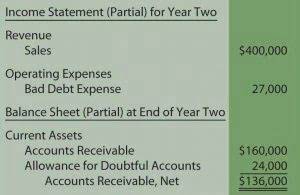Finally Understand The Difference Between Bookkeepers & Accountants
Content

This refers to entering the detail of every penny Wanderlust sends or receives from another entity. It means that anybody can sell or buy these companies’ shares from the open market. An investment consultant provides investors with investment products, advice, and/or planning. The offers that appear in this table are from partnerships from which Investopedia receives compensation.
- They should understand your industry and the unique needs and requirements of small businesses.
- Cost – Bookkeeping services cost much less than accounting services because the work is not as comprehensive.
- They perform all the reconciliations, General journal entries, payroll , sales tax and pretty much everything except the actual tax returns.
- Despite declining employment, about 170,200 openings for bookkeeping, accounting and auditing clerks are projected each year, on average, over the decade.
It can be a significant step to run a financially successful business. Many small businesses don’t make the choice between bookkeepers vs. accountants and simply have both.
Activities Of Bookkeeping And Accounting
The difference between a CPA and a regular accountant is that only CPAs can write an audited financial statement, such as a balance sheet or income statement. Companies that sell shares on the stock market have to provide audited statements so investors can judge the worth of the stock. Smaller companies that don’t sell shares may get along fine with an accountant who is not a CPA. Are responsible for entering the data into the books and keeping the records up to date. It involves tracking all income and expenses, paying bills, invoicing, tracking payroll, etc. The Chart Of Accounts A chart of accounts lists all the general ledger accounts that an organization uses to organize its financial transactions systematically.
- The terms “bookkeeper,” “accountant,” and “CPA” are often used interchangeably.
- In some states, a person must be a CPA in order to refer to themselves as accountants.
- Both positions provide strategic advice and information to their clients.
- She is a QuickBooks Online ProAdvisor, LivePlan Expert Advisor, FreshBooks Certified Beancounter, and a Mastery Level Certified Profit First Professional.
- Certified public accountants are accountants regulated by their state board of accountancy.
Your financial data must be current and accurate so you have the tools you need to make sound business decisions and implement healthy cash flow strategies. Bench gives you a dedicated bookkeeper supported by a team of knowledgeable small business experts. We’re here to take the guesswork out of running your own business—for good. Your bookkeeping team imports bank statements, categorizes transactions, and prepares financial statements every month. Some business owners learn to manage their finances on their own, while others opt to hire a professional so that they can focus on the parts of their business that they really love.
Bookkeeper Vs Accountant: Top 10 Differences
Both bookkeepers and accountants provide strategic advice to their clients. This allows small business owners to have a better understanding of the profitability and cash flow. Accounting converts information from the ledger into financial statements that indicate the financial health of the company, and how it is progressing on. Because accountants charge more than bookkeepers, most emerging businesses typically can’t afford to engage an accountant on a full-time basis. However, using an accountant for tax preparation can sometimes pay for itself in the form of lower tax bills. And having a professional on your side provides a level of confidence that you are managing potential enterprise risks that could arise from mistakes on your tax return. Your tax accountant will probably also be willing to provide advice on specific issues as they come up.

The preparation of financial statements involves putting all the accounting information into a standardized set of financials. This is mainly done to provide information about the cash flow of the organization, financial position, and result of the ongoing operations in the company. Since they are more strategic in their https://www.bookstime.com/ job role and have insights to offer in critical business decisions, one wouldn’t hire an accountant to record expenses and income. Many people use the words business accounting and bookkeeping interchangeably. Bookkeepers and accountants generally work together very closely in order to fully serve their clients.
Bookkeeper Vs Accountant
It is a way of tracking how money flows in and out of your business by entering debits and credits in at least two accounts in a company’s chart of accounts. The debits and credits offset each other with the goal being a net sum of zero to keep the books balanced. As your small business grows, the financial side of running a company inevitably becomes increasingly complicated.
- If you are looking to out source your bookkeeping needs you want to look for someone that has been in the industry for several years, has experience in your field.
- Akin to how bookkeepers have a variable range of education, they also tend to have differing amounts of experience.
- Accounting is the interpretation and presentation of that data to business owners and investors.
- CPA is considered one of the most credible, reputed, and sought-after certification in the accounting industry.
- CPAs are accountants who have been practicing longer, completed a higher level of education and passed the CPA exam.
- This is the ultimate guide to get your finances in shape including whether to hire or contract help to handle your financial records.
The first difference between an accountant and a bookkeeper is the schooling required for each role. Having accurate records and an up-to-date awareness of how your business flows on a short-term basis is a key component for deciding where to go next, and that’s where a bookkeeper comes in.
What Are The Latest Trends In Tax Law?
A bookkeeper is responsible for accurately recording transactions, including accounts receivable, accounts payable, inventory, and payroll, and providing reports on a monthly, quarterly, and annual basis. Bookkeeping is necessary for most commerce businesses with an inventory of goods. There is too much to do on your own with receivables, payables, taxes, payroll, reconciliations, and vendors relationships.

Previously, we’ve explained about the top accounting terms and concepts you need to know. In today’s post, we’ll explain the differences between bookkeeping and accounting. While these two terms are often used interchangeably, they refer to two vastly distinct functions and roles. Here’s the bottom line — both bookkeepers and accountants provide important duties to the overall functioning of a business.
Let’s take a closer look at the functions of an accountant and those of a bookkeeper to have a clearer understanding of what each professional can do for your business. There are some key differences between business bookkeeping vs. accounting, though those differences are becoming increasingly blurred. Advancing technology and shifting mindsets in both professions are causing many bookkeepers to take on roles more traditionally managed by accountants. Similarly, many accountants are branching off into different areas of focus to help their clients manage their entire financial situation more effectively.
What Is A Cpa?
But many CPAs have a focus on tax law, meaning that this focus will color their recommendation to your business to try to improve your business’ tax situation. This financial advice may not be aligned with your business’ overall goals or may not take into account other factors that can’t only be learned through regular, consistent meetings. A business owner asking the CPA to do a one-off analysis may not receive a 360 degree view if he/she doesn’t think to tell the CPA every possible variable. Plus, may CPAs have limited additional capacity during tax season – and the strategic business needs run year round. We often encounter business owners trying to figure out their organization’s structure and which roles they need to hire or outsource. They might even be considering allowing a finance department employee to take on more strategic or supervisory finance responsibilities to save on the cost of another full-time hire.

Bookkeeping involves recording financial transactions, managing business accounts and maintaining accounting systems. Accounting, on the other hand, focuses on analyzing those financial records and giving advice based on patterns they notice and a client’s financial Bookkeeper vs Accountant goals. Bookkeepers post debits and credits to record each transaction and make sure all income and expenses are accounted for. These elements are crucial for a business owner to understand the day-to-day picture of their business’s financial health.
The US doesn’t have a standardized qualification for practicing bookkeepers. The U.S. Bureau of Labor Statistics states that those practicing bookkeeping should hold at least a high school diploma, backed up by at least 2 to 4 years of job experience. The main bookkeeper responsibility is to be perfectly accurate, that’s why it’s been increasingly transitioning to using cloud automation software to avoid all mistakes that come from manual data entry. These topics remain hot because there’s always a lot of confusion about it. As a small business owner, you have to do your best to allocate your resources wisely. The actual day-to-day tasks for an accountant will depend largely on their specific qualifications and on the needs of the company. Decision-makers often seek the advice of accountants when they need help with budget forecasting, calculating tax liabilities, and tax filing.
Bookkeeping Vs Accounting: So, Whats The Difference?
In most instances, a bookkeeper’s work is overseen by an accountant or small business owner. While one needs to be knowledgeable about a wide range of financial topics and transactions, and possess an eye for details, they aren’t formal requirements to becoming a bookkeeper.
Are Bookkeepers Accountants?
Bookkeeping and Accounting comes with another significant difference in the managerial position. Billie Anne has been a bookkeeper since before the turn of the century. She is a QuickBooks Online ProAdvisor, LivePlan Expert Advisor, FreshBooks Certified Beancounter, and a Mastery Level Certified Profit First Professional. Glorified Data Entry – Generally will not question the data being imput. Why is the GST line not in agreement with the Total GST on the invoice? This decision is personal and depends on your business needs and objectives.
Credentials And Job Functions
Investopedia does not include all offers available in the marketplace. If you are proficient and comfortable using mathematics and computing figures, plus punctual, organized, and detail-oriented, it is not hard to learn how to be a bookkeeper. Of course, a background in accounting practices will help you ride out a learning curve as a new bookkeeper. In most cases, employers want to hire someone with a bachelor’s degree, and a master’s degree may help boost your earnings. Greg DePersio has 13+ years of professional experience in sales and SEO and 3+ years as a freelance writer and editor. Shayna Waltower, Kiely Kuligowski and Lori Fairbanks contributed to the writing and reporting in this article.
